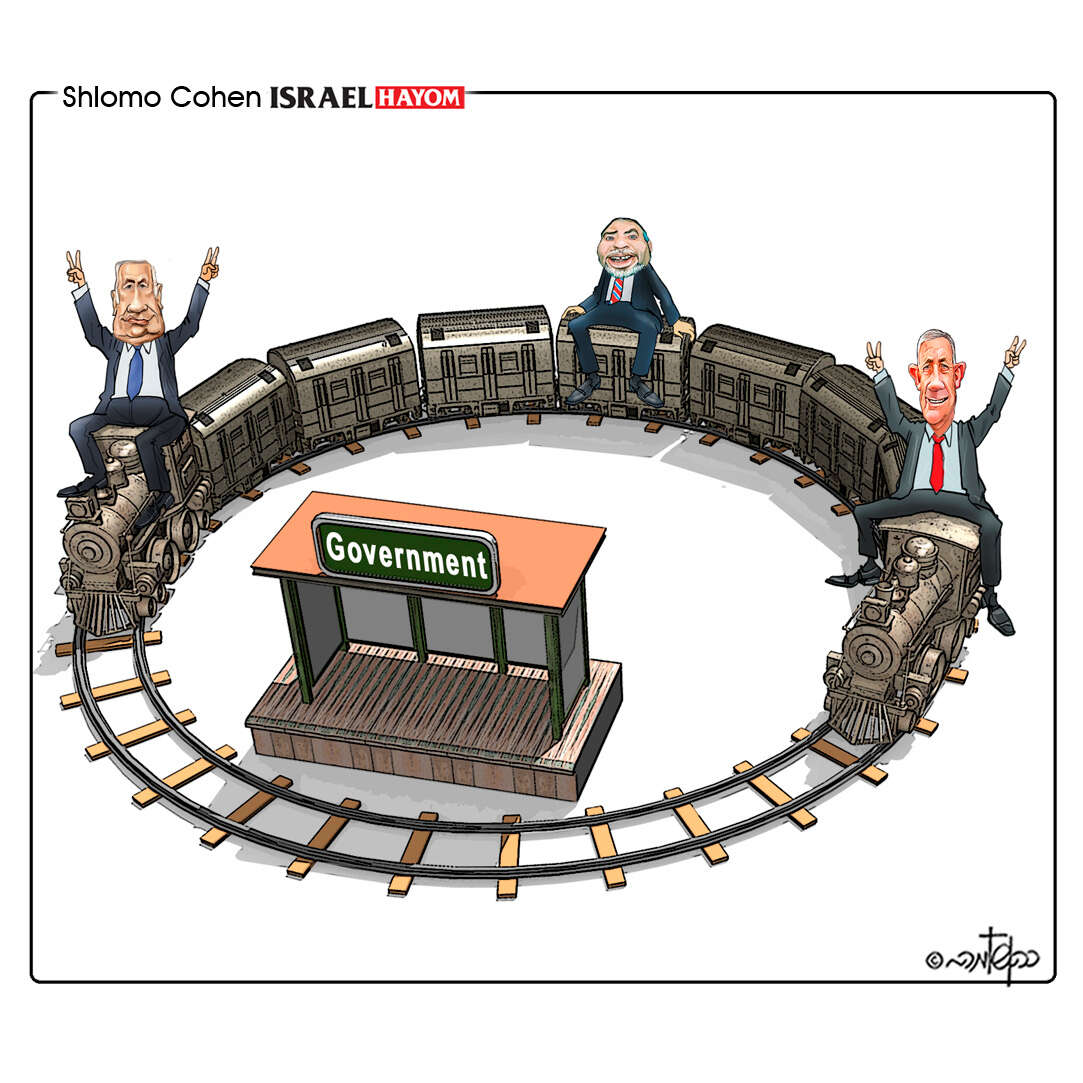Melanie Phillips: In a deadlocked election, the real winners are Israeli Arabs
Israeli Arabs are poorly served by their elected members of Knesset. According to a recent survey by researchers at Tel Aviv University, crime, unemployment, welfare, and the community’s dire housing crisis top Israeli Arabs’ concerns.Kevin D. Williamson: The Iran Dilemma, the Saudi Dilemma, and the Iran–Saudi Dilemma
Their Knesset members, however, are interested only in political posturing that bashes Israel, behaving as a kind of disloyal fifth column inside the Knesset intent upon harming the state to whose legislature they have been elected.
MK Ahmad Tibi, for example, does not support Israel as a Jewish state, opposes the Law of Return and has challenged the Jewish religious symbols on the national flag.
Former MK Hanin Zoabi has walked out of Knesset during the singing of “Hatikvah,” claims that the Israel Defense Forces are a greater danger than the possibility of Iranian nuclear weapons, and has said that Palestinians who kidnap Israeli civilians are not terrorists because such actions are their only alternative to suffering under occupation.
Before April’s election, some Israeli Arabs were quoted bitterly criticizing the Arab List MKs.
“It didn’t represent us, and it did great damage to the [average] Arab citizen who wants to integrate,” said one resident of Abu Ghosh, an Arab village near Jerusalem. “The infrastructure in the Arab communities needs to be taken care of, and they [the Arab lawmakers] aren’t dealing with it.
“We recognize the existence of the only democratic country in the Middle East and want to be a part of the country. And we’re proud of it. We, Israeli Arabs, exist with our Jewish brothers. Not coexist, exist.”
Those living in east Jerusalem, where civic status falls into an unhappy legal limbo under uneasy Israeli sovereignty over that part of the city, are by default Israeli residents but not citizens.
Officially, they are citizens of Jordan. Most choose not to exercise the right to which their residency entitles them to vote in Jerusalem’s municipal elections.
But Jerusalem’s city hall is currently swamped by applications from Israeli Arabs in east Jerusalem who are keen to activate the right they enjoy under Israeli law to convert their residency into Israeli citizenship.
They want to be Israelis. They don’t want to be citizens of a future Palestinian state.
The United States has enough firepower at its command that it can afford to wear its idealism on its sleeve.Book review: 'After ISIS'
Is the United States going to go to war against Iran on behalf of Saudi Arabia? Probably not.
Should it?
Probably not.
The Saudi regime is, to be plain about it, detestable. It is wildly corrupt and horrifyingly repressive, it tangles together sundry absolutisms and fanaticisms (religious, nationalist, monarchist) into a mess of diplomatic and military trouble, it is duplicitous, and — perhaps most dangerous of all — in spite of its aspirational absolutism, it cannot even control its own contradictory internal constituencies, which is why the Saudi elite cultivates Islamic terrorism with one hand while fighting it with the other. Americans invested a lot of hope and diplomatic currency in the belief that crown prince Mohammed bin Salman was going to turn out to be the great reformer that the West keeps hoping will emerge in the Islamic world, and he’s shaping up to be just another Arab caudillo, if a slicker and more intelligent specimen than the general run of them. There is not much there to hang American hopes on.
But the Iranians are worse. At least, that is the conventional point of view in Washington. The question of what is worth fighting for sometimes is distinct from the question of what is worth fighting against.
And that, fundamentally, has been the argument underpinning continued U.S. support for Saudi Arabia, which is put forward as the great counterweight to the forces of jihad and chaos in Tehran. It is classical great-gaming, the enemy-of-my-enemy thinking that — while not always wrong and occasionally even necessary — has led the United States into so much trouble in the Muslim world, with so many unintended consequences. The legend that the United States “created al-Qaeda” is not exactly true, in the way it usually is put forward, but it is not entirely an invention, either.
The rat bastards in Riyadh, we keep telling ourselves, are our rat bastards — mostly, and most of the time, when they are not murdering columnists for American newspapers or torturing human-rights advocates as a prelude to raping and murdering them or launching ill-advised wars on their neighbors. This so-called foreign-policy realism (which can be very unrealistic) is what is used to paper over both the domestic abuses of the Saudi state and, more important, its habit of acting in a way that is inconsistent with long-term American interests in the region. Of course the Saudi leaders are vicious, depraved, and fundamentally anti-American, the story goes, but they are not quite as vicious, depraved, or anti-American as their Iranian counterparts.
As Frantzman leads us through the sequence of events that slowly but surely squeezed ISIS out of the vast areas of Iraq and Syria that it had originally conquered, he provides an informed commentary on their impact. He embraces issues ranging from the effect on Europe of the influx of refugees from the Middle East, to the success of the Kurds’ peshmerga fighters against ISIS, the subsequent boost to their independence aspirations, followed by the efforts by Turkey’s President Recep Tayyip Erdoğan to remove what he saw as a Kurdish threat to his regime.
Frantzman brings to light the temporary battlefield alliances that were formed and disintegrated as the US-led coalition slowly crushed ISIS, and also with more profound changes in political thinking in the region, for example how Iran’s growing influence encouraged Saudi Arabia and the UAE to look increasingly toward Israel as an ally, and how it changed the strategic thinking of Jordan and Egypt.
In considering whether the post-ISIS era would simply replicate the worst days of al-Qaida terrorism under Osama bin Laden, he is not wholly pessimistic. He sees hope in the rise of a younger generation of Middle East leaders that came of age in the 1980s or 1990s, in an era of US hegemony, taking over from leaders who had run the region since the colonial era. “With the Saddam Husseins, Mubaraks, Gaddafis, and Salehs out of the way,” he writes, “there may be a new way forward.”
The basis for Frantzman’s qualified optimism lies in his belief that the whole ISIS episode was a unique phenomenon – a one-off. In his words: “It appears that the power of ISIS was sui generis. A group like this will not appear again. This was the apogee of Islamist extremism and jihadist groups.”
“After ISIS” is a comprehensive, insightful, thought-provoking account of how an exceptionally ruthless and brutal organization succeeded in capturing the imagination of scores of thousands of Muslims the world over, how it rose to control large parts of Syria and Iraq and rule over millions, and how finally it was defeated. For anyone wishing to understand how this all came about and what might follow, “After ISIS” is essential reading.













































